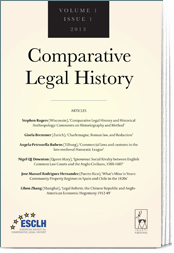- A
- A
- A
- АБB
- АБB
- АБB
- А
- А
- А
- А
- А
- НИУ ВШЭ в Санкт-Петербурге
- Санкт-Петербургская школа гуманитарных наук и искусств
- Департамент истории
- Новости
- Статья доцента факультета истории Татьяны Борисовой (в соавторстве с Юкка Сиро) "Law between Revolution and Tradition: Russian and Finnish Revolutionary Legal Acts, 1917–18"
-
Департамент
-
Образовательные программы
Адрес:
190068 Санкт-Петербург
Набережная канала Грибоедова, 123 лит А, кабинет 123
Тел. +7 812 644-59-11 *61417
Руководитель департамента
Департамент был основан как факультет истории в 2012 году. Основная цель департамента — систематическое развитие глобальной, сравнительной и транснациональной истории как общей рамки исторического знания и инструмента преодоления ограничений, создаваемых канонами национальной истории. Миссия департамента — развитие нового типа исторического образования в России и новых исследовательских областей российской историографии в диалоге с современной мировой историографией.
В данном разделе Вы найдете онлайн лекции от наших преподавателей!

Статья доцента факультета истории Татьяны Борисовой (в соавторстве с Юкка Сиро) "Law between Revolution and Tradition: Russian and Finnish Revolutionary Legal Acts, 1917–18"
 Аннотация статьи:
Аннотация статьи:
This article compares the legislative practices of two socialist revolutions in Russia (the Bolshevik revolution) and Finland in late 1917 and in 1918. Notwithstanding the considerable differences in the social, political and economic conditions in Finland and Russia, the revolutionaries in both countries had similar legislative strategies. The revolutionary legislative policies had the same ends: to secure the success of the revolutions, and, even- tually, to build a new and better society. This article seeks to demonstrate the history of revolutionary law-making as a juncture of two main tendencies: the emergence of new ‘revolutionary’ features of legislative politics and the preservation of pre-revolutionary law. We argue that the pre-revolutionary practices of law-making on which the revolu- tionaries relied shaped their strategies and, to some extent, the criteria by which they judged the ultimate success of their revolutions. We argue that the performative effect of revolutionary slogans should be perceived, at least in part, as a continuity of pre-revo- lutionary legal and administrative practices. Our comparative analysis of revolutionary law-making provides a more complex understanding of the role of revolutions in modern state empowerment.
- О кампусе
- Сведения об образовательной организации
- Руководство и структура
- Подразделения
- Преподаватели и сотрудники
- Попечительский совет
- Корпуса и общежития
- Закупки
- ВШЭ для студентов с ограниченными возможностями здоровья и инвалидностью
- Версия для слабовидящих
- Единая платежная страница
-
http://www.minobrnauki.gov.ru/
Министерство науки и высшего образования РФ
-
https://edu.gov.ru/
Министерство просвещения РФ
-
http://www.edu.ru
Федеральный портал «Российское образование»
-
https://elearning.hse.ru/mooc
Массовые открытые онлайн-курсы
- © НИУ ВШЭ 1993–2024 Адреса и контакты Условия использования материалов Политика конфиденциальности Карта сайта
- Редактору

